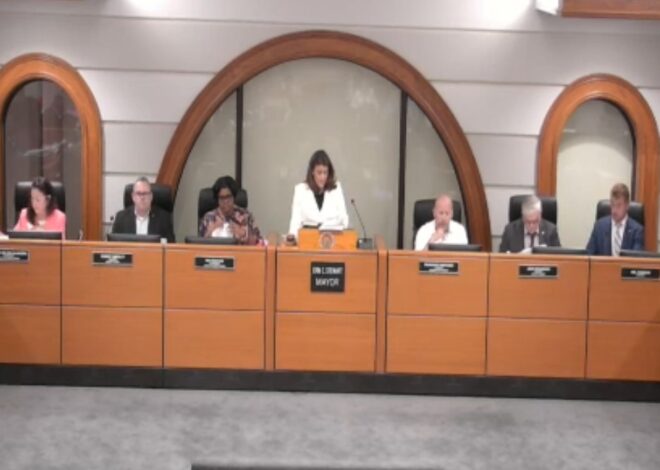Water-gate? Extreme Drought Continues While Stewart Drinking Water Well Sale Comes Under Increased Fire
Press Pool
New Britain continues to be under “Extreme Drought” conditions, according to the United States Drought Monitor. The news comes as the plans by Republican Mayor Erin Stewart to sell a high-yield drinking city water well come under increased fire, with state legislation proposed in response to the sale.
 The well sale has come under criticism as being far lower than its real value and for being rushed into approval before Stewart announced severe drought conditions affecting the city’s water supply.
The well sale has come under criticism as being far lower than its real value and for being rushed into approval before Stewart announced severe drought conditions affecting the city’s water supply.
The U.S. Drought Monitor’s map places New Britain in its “D3” category for “Extreme Drought”. Only a small portion of the nation is in the D3 category. According to the National Oceanic and Atmospheric Administration’s National Centers for Environmental Information, “severe to extreme drought affected about 2 percent of the contiguous United States as of the end of January 2017”. That 2% includes both the “Severe” and “Extreme,” categories, and New Britain falls into a smaller area impacted by the more severe, “Extreme” conditions.
Moreover, the Drought Monitor has classified the area of Extreme Drought that New Britain is in as “L” for “Long Term”, as opposed to as “S” for “Short Term”. The “Long Term” classification is defined by the Monitor as being “typically greater than 6 months (e.g. hydrology, ecology).”
The United States Drought Monitor is “a weekly map of drought conditions that is produced jointly by the National Oceanic and Atmospheric Administration, the U.S. Department of Agriculture, and the National Drought Mitigation Center (NDMC) at the University of Nebraska-Lincoln”.
According to Protect Our Watershed CT, “on February 7, 2017, the New Britain Board of Water Commissioners met and reported that New Britain is still in a phase 1 water supply emergency,” and that “The reservoirs were at 40.6% capacity as of January 30, 2017 … The historical level is 76% of capacity.”
Against this backdrop comes rising criticism and of Stewart’s controversial plan, approved by the Republican-dominated City Council, to sell New Britain’s Patton Brook Well, capable of producing 1.2 million gallons of drinking water per day. There is also evidence that the Republican mayor was in a position to know about the effects of the severe drought on the city’s water supply at the time that she pressed for Council approval of the well sale.
On October 11, 2016, the New Britain Progressive broke the news that New Britain’s pubic water system was in a “water supply alert”. (The Progressive was called the New Britain Independent at the time.) The next day, Stewart admitted that water supply alert conditions existed.
While Stewart, in her October admission, counseled city residents “to take voluntary water conservation measures, such as limiting the watering of things like lawns, gardens, driveways, and sidewalks”, the New Britain Herald exposed that “the city has been at water supply alert stage since May” of 2016. Stewart’s October press release offered no explanation for urging residents not to water their lawns and gardens in October for a water supply alert condition known to city officials during the entire summer.
The selling of the 1.2 million gallon a day well to the wealthier Town of Southington has come at a time that New Britain has found itself itself in the position, without recent precedent, of buying water from the nearby regional water authority, the Metropolitan District Commission. According to Protect Our Watersheds CT, “for end of 2016, the Metropolitan District’s bill was in the amount of $234,931, and $34,000 extra would be involved for employees and fuel costs, bringing the cost up to almost $270,000. … We have not yet received the January bill yet, but $500,000 had been budgeted for it. It cost approximately $13,000 per day for ten days.”
The City Council voted to approve the Patton Brook Well sale on August 10, 2016, a date that falls after the time that city officials were in a position to be aware of the effects of the severe drought on the city’s water supply but before Stewart’s press release informing the public about it.
At the time of the Council approval, the sale proposal had come under heavy fire from city residents as being dramatically lower than its true value. Contributing columnist, John McNamara, noted on July 8, 2016, “The $1 million sale price is neither fair nor reasonable given what Erin Stewart is proposing to irrevocably give up at a lower price that does not represent Patton Brook’s actual worth.”
McNamara had also observed that, “How the Stewart Administration arrived at or agreed to the lower $1 million price should be a question on the minds of residents and the Common Council.”
That question prompted State Representative Rick Lopes (D-24) to introduce House Bill 6481. That legislation would require “that a municipality or water company complete a fair market appraisal of any property encompassing a watershed, well or reservoir before such property may be sold, and to make such appraisal public at least ninety days prior to such sale.” While Stewart and the Council approved the sale, it still must be approved by the State Department of Public Health.
The sale of the Patton Brook Well is one of two water-related issues that concern both the City of New Britain and the Town of Southington. Stewart has also been pressing forward with a controversial proposal to allow the Tilcon corporation to strip-mine a large area of New Britain’s drinking watershed lands. The proximity of the proposed strip mining to Southington and Crescent Lake in Southington have made gaining the Town of Southington’s support for the plan a significant part of the lobbying campaign in favor of it.



